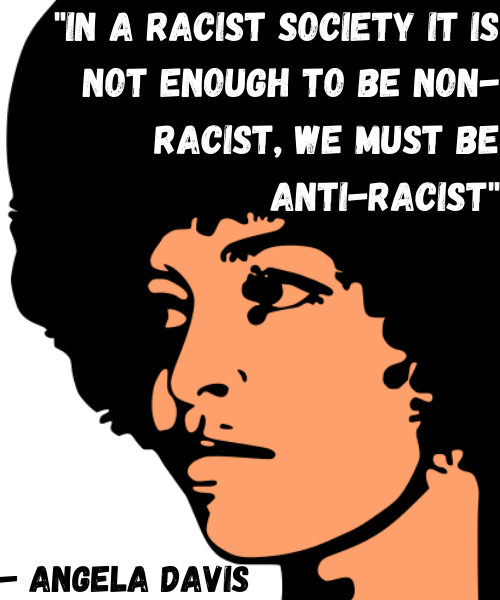From Colonialism to Everyday Racism
The aim of this four module lecture series is to carve out the continuity between a history of colonialism and contemporary forms of racism in Europe. As a result of the legacy of the holocaust, the word “race,” for instance, is kept out in most public European discourses. Although this is an intended antiracist practice, it has, inadvertently, established an “antiracist norm,” which presumes that “racial difference does not matter” (Hondius, 2009). Constructions of Other that are based on racial (read:visible) differences, however, are alive and well in our thinking and speaking. I will argue throughout this lecture series that the European enslavement of Africans has been pivotal in the making of a white European consciousness and identity. If we do want to overcome structural inequalities of race and cultural attitudes of racism, we need to develop a greater awareness of the connection between the legacy of slavery and current forms of racism.
The individual lectures
1. European Colonialism and the Transatlantic Slave Trade (12-11)
2. European Others (19-11)
3. and 4. Tolerance, Multiculturalism and Contemporary Articulations of Racism in Europe (26-11 and 3-12)
Module 1: European Colonialism and the Transatlantic Slave Trade
As the fourth largest slave-trading nation, the Netherlands exported approximately half a million captives between 1630 and 1794 (Hartman, 2007:78). The process of captivation, imprisonment and enduring the middle passage took place under most brutal and violent circumstances taking the lives of millions of enslaved Africans. Slavery did not only operate on an economic, cultural and geographical, but also on a discursive level. Moreover, it had an tremendous impact on the European psyche, their thought systems and the way Europeans construct reality. The navigating question for this lecture will be what has slavery done to European thought systems and European consciousness? How do ideas of European humanism, progress and modernity change when looked at from the standpoint of the enslaved (Gilroy 1995, Soyinka, 1998)?
Module 2: European Others
Although there has been a Black presence in European metropoles for at least 500 years, Blackness and Europeanness are still an oxymoron. Practices of exclusion express themselves in mundane everyday actions such as the question “but where are you really from?” (El_Tayeb, 2011). In this lecture, I will outline key figures and events in Black European history with a particular focus on Germany and the Netherlands. The question guiding this lecture will be, what has been the experience of Black people in these two countries throughout the centuries?
Modules 3 and 4: Tolerance, Multiculturalism and Contemporary Articulations of Racism in Europe
European expressions of racism are marked by what Theo Goldberg calls a “European racelessness” (2006) or what is otherwise called colorblindness. This encompasses an atmosphere in which race and racism seemingly do not exist or are treated as a thing of the past. European values such as tolerance and multiculturalism underscore this milieu of racelessness. Rather than focusing on blatant forms of racism, I will emphasize and elaborate on more subtle forms such as everyday racism (Essed, 1991) and silent racism (Trepagnier 2006). It is these subtle forms, I argue, that uphold current structures of racial inequality that are built into our societal institutions. The controversy of Black Pete in the Netherlands will serve as an example to show how the link between a history of slavery and current articulations of racism is still not made by the majority of the Dutch population – according to a current survey 81% still do not find Zwarte Piet to be a racist phenomenon (Klapwijk, 2019)- despite decades of criticism by people of color. This denial, or rather this practice of “doing ignorance” as I call it, is supported by the “Dutch self-image of openness and tolerance” (Wekker 2016). Doing ignorance with regard to racially problematic traditions and our own internalized racism, allows us to keep up the idea of our own “white innocence” (Wekker 2016), in this way we do not have to come to terms with the past of colonialism and how it is still affecting us today.

Dates
Thursday 12, 19 and 26 November, and 3 December - 19:30 to 21:30
Costs whole series
UM students for free
UM employees and students from other schools €10
Others €20
Registration
You can register here for this lecture series.
About the speaker
Ulrike Mueller, PhD
Scientific Staff University College Maastricht